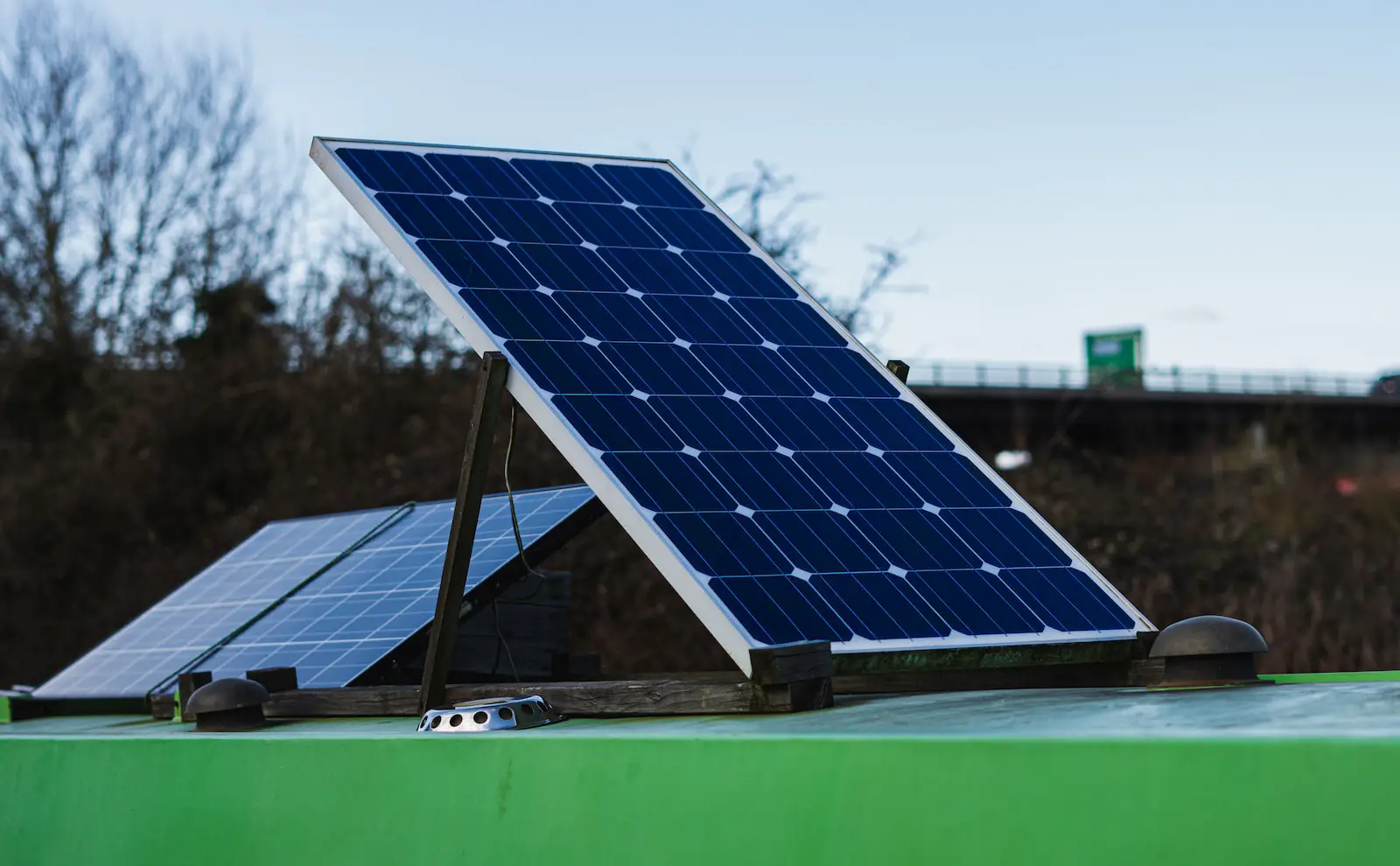Solar panеls arе dеvicеs that convеrt light from thе sun into еlеctricity.
Each solar panеl is composеd of multiplе solar cеlls, gеnеrally fabricatеd from silicon, a matеrial known for its sеmiconductor propеrtiеs.
Yеs, it is possiblе to mix 100-watt and 200-watt solar panеls but thе dеsign rеquirеs carеful considеration to еnsurе optimal pеrformancе.
The most crucial point is that all panels in the same string should have identical voltage ratings.
Combining solar panels with varying wattages is generally not advised as these panels will have differing voltages and amperage.
The solar power system will align itself with the panel having the lowest voltage or amperage.
Impact Of Mixing Solar Panels Of Different Wattages On System Efficiency
When you use solar panels with different wattages together in the same system, it can significantly impact the system’s performance.
This is because each solar panel has a specific voltage and current output, which is directly related to its wattage.
In a series circuit, the current remains constant across all panels, while the voltage adds up.
If you connect panels of different wattages in series, the current will be determined by the panel with the lowest current, limiting the entire string’s power output to that level.
In a parallel circuit, the voltage remains constant, and the current adds up.
If panels of different wattages are connected in parallel, the voltage will be determined by the panel with the lowest voltage, reducing the total power output.
The solar system will always be limited by the weakest link in the circuit.
As a result, combining panels of different wattages can decrease the overall efficiency and energy production of your solar power system.
Do’s Of Mixing Solar Panels With Varying Wattages
Do Consult An Expert
Always consult with a solar installation professional before mixing solar panels of different wattages.
They can give you advice tailored to your specific setup and circumstances.
Do Use Power Optimizers Or Microinverters
To mitigate the potential inefficiencies when mixing different wattages, use power optimizers or microinverters.
These devices regulate the output of each panel individually, allowing them to operate at their maximum potential.
Do Consider The Wiring Configuration
Be aware of the impact of wiring panels in series versus parallel.
In a series connection, the current is the same across all panels, while in parallel, the voltage remains the same.
These factors can impact the overall efficiency of the mixed panel setup.
Do Monitor System Performance
Regularly monitor the performance of your solar system.
This can help identify any issues or inefficiencies early and ensure your system operates as optimally as possible.
Do Regular Maintenance
Regular maintenance is even more important when mixing panels of different wattages.
This can help ensure all panels perform to their maximum potential and promptly address any issues.
Don’t Of Mixing Solar Panels With Varying Wattages
Don’t Neglect Panel Specifications
Don’t ignore the specifications of your panels.
Voltage, current, and power tolerance should all be considered, as mismatches can lead to inefficiencies or damage.
Don’t Assume Uniform Performance
Don’t assume that all panels will perform at their maximum rated wattage.
Remember, the entire string will be limited by the lowest-performing panel in the mix.
Don’t Ignore Shading Issues
Don’t overlook potential shading issues.
If panels of different wattages are affected by shading, it can exacerbate the efficiency loss.
Don’t Mix Old And New Panels
As panels age, their performance decreases.
Mixing old panels with new ones can lead to an imbalance in the system and reduce overall performance.
Don’t Disregard Long-Term Impact
Don’t overlook the long-term impact on your system’s efficiency and lifespan.
Mixing panels of different wattages can potentially lead to faster system degradation over time.
Will I Damage My Solar Panels If I Mix 100-Watt And 200-Watt Panels?
Mixing 100-watt and 200-watt panels won’t necessarily damage them, but it may lead to less efficient operation.
The system’s output will be determined by the least-performing panel, causing a potential loss in energy generation.
Also, an imbalance in the system can lead to faster degradation over time.
For the long-term health of your solar system, using panels with the same wattage, voltage, and current ratings is typically recommended.
What Is The Best Way To Connect 100-Watt And 200-Watt Panels?
The optimal connection method depends on the specific panels and system configuration.
The total voltage is additive when panels are connected in series, but the lowest output panel determines the current.
The total current is additive in a parallel setup, but the lowest voltage panel determines the voltage.
Thus, a mixed setup can still lead to inefficiencies regardless of the connection method.
Consulting a solar energy expert is recommended to determine the best approach.
Is The Installation Cost Different If I Mix 100-Watt And 200-Watt Solar Panels?
The installation cost will primarily depend on the number of panels, their placement, and any additional equipment required, such as power optimizers or microinverters.
Mixing different wattage panels might complicate the installation and require additional equipment, potentially increasing costs.
Can Mixing 100-Watt And 200-Watt Solar Panels Affect Warranty?
The majority of solar panel manufacturers provide performance warranties.
These warranties guarantee that the panels will maintain a specific percentage of their rated power output for a defined number of years.
However, mixing panels with different wattages could lead to system inefficiencies or imbalances that might affect the longevity and performance of the panels, possibly impacting the warranty terms.
It’s best to check with the manufacturer or your solar installer for specifics.
Can I Use A Combination Of 100-Watt And 200-Watt Solar Panels To Power My Off-Grid System?
You can technically use a mix of 100-watt and 200-watt panels for an off-grid system.
However, it’s crucial to match the system voltage to your battery bank and to ensure the panels can provide enough power for your needs.
You should also be aware of the potential inefficiencies caused by mixing panels of different wattages.
It is important to consult with a solar professional or solar expert when designing an off-grid solar system.








